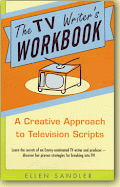 Susan Henderson was the Managing editor of Night Train literary magazine, where she selected and edited stories, as well as oversaw the editorial staff. In the freelance editing world, she has edited approximately 40 books that went on to be published by most of the major publishing houses and a number of indie presses.
Susan Henderson was the Managing editor of Night Train literary magazine, where she selected and edited stories, as well as oversaw the editorial staff. In the freelance editing world, she has edited approximately 40 books that went on to be published by most of the major publishing houses and a number of indie presses.EI: It used to be far easier to find editors who would be willing and able to grow a writer from a first novel that today is deemed too small, too labor intensive, and therefore too much of a long shot. Do you think a quiet gem isn't what gets an editor excited? What's your opinion of these as an editor?
Susan Henderson: There are two answers I'd give here because I edited in two very different capacities. When I was a magazine editor, I wanted to feel breathless and wowed by a story, sentence by sentence. I wanted to not be able to guess the direction or the ending of the story. And when I finished the story, I wanted to feel so jealous I didn't write it myself that I would have to cool off before contacting the writer.
Now, did we get these stories at Night Train? Yes, but rarely. Most often - even more often than the really poor quality stories - we'd get these finely crafted textbook stories where I could find no fault in them but they just left me with the feeling of "Hmm, well, that was well-written, I suppose." Often the ones that had me on fire were flawed all over the place, but there was a passion and originality to
them that made me desperate to publish them. For these stories, I would work like crazy with the author to help make them complete in whatever way they were lacking. This takes time, though, and it takes getting on the same page with the author and being careful not to overstep in the direction they take with their edits. Not all editors have that kind of time. And while your head is turned, hundreds of new
manuscripts are flooding in.
As far as book editing goes, I think the time it takes to fix a broken piece of genius might be too difficult for both the editor and the writer. My job editing books was always word of mouth and often I'd get called in after a book was accepted for publication and there was a conflict between the author and the book's formal editor. I specialize in two things: one is tightening the prose without compromising the author's voice or vision. So I will read a nearly polished manuscript and look for issues of slow pacing or wordiness. That's the work I love because then the story and the poetry of the book really pops.
The other editing work I do, which I don't like as much, is I'll work with a panicked author who's about to miss their deadline because they're overwhelmed by the edits they received from their in-house editor. Sometimes an editor will suggest changes that, to the author, not only seem huge, but to make those changes can start to unthread the rest of the story. So sometimes I'll walk through the entire
manuscript and say, if you make this change they suggested right here, you'll need a scene in such and such chapter that does this or that. So that work is about simplifying and concretizing an editor's suggestions so the work feels manageable and the author can make deadline.
EI:Do you think that it is still possible for an editor to find another Steinbeck or Salinger to emerge from the slush and become successful?
Susan Henderson:It's really hard to emerge from the slush because so many editors stop reading at the second or third sentence. Sometimes you'll get three pages in. But already, you're making judgments: I've seen this before; the writing doesn't wow me; I'm not attached to the characters; the story's a great portrait but where's the inciting incident?
There's a lot of pressure to find fast-paced stories where you're oriented right away to the presenting problem and what's at stake. Some of the great masters of writing took their time, and today, you have to wonder if an editor or agent will stick with your manuscript long enough to see that its gold. These are impatient times.
Certainly, it would be hard to see James Joyce's Ulysses published today. I think Kafka would make the cut, but Victor Hugo might have been told to focus and cut, Jonathan Swift and Miguel de Cervantes and others would have had their manuscripts radically simplified, I'd guess.
When your desk is stacked with manuscripts, you come across so much that is very good and so little that rises to that level where you forget you're reading and it no longer feels like work. I think the volume, pure and simple, leads to speed-reading and putting so much pressure on the opening. That, and knowing how hard it is for the general public to pick up a book and stick with it these days. Editors
are trying to choose books that appeal to people with no time for books, you know?
I'm hopeful, though, that good literature won't die away. Part of that is the existence of independent press. Jeff Lependorf of CLMP is one of my heroes in the literary world because he works so tirelessly to keep small press alive. I also think the literary magazines help in rewarding non-commercial literature. And finally, any individual can raise their head from the slush pile with some key publications in print (or better yet, online) literary magazines, and can build a name there and by actively commenting on blogs. All of these things give a writer more chances to get a slow and solid look and his manuscript.











.png)

No comments:
Post a Comment